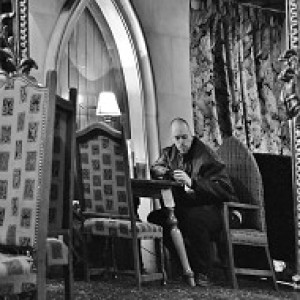Rumours Of War
A century ago today, the entire nation of Britain spontaneously stripped naked, painted itself red white and blue, danced in the streets and celebrated the outbreak of a war which they unanimously and hubristically declared would be over by Christmas, stopping only to pack their twelve-year-old son off to the recruiting office along the way. So large sections of the media would have you believe, as comfortable stereotypes are their forte, especially when those stereotypes depict ordinary people as simple-minded souls who enjoy waving flags around and not questioning their social superiors. Of course, anyone with even a passing interest in history can find out very quickly that this rosy portrait of a war-drunk nation isn't entirely accurate.
The ultimatum delivered by the government to Germany on the 4th of August demanded that the Kaiser's forces withdraw from Belgium, which they'd invaded at eight o'clock that morning, by eleven the same evening. Germany refused, and Britain's declaration of war was carried in morning editions of major newspapers, and shouted by newsboys well after midnight in the major cities. In Birmingham, Elizabeth Cadbury attended church, but found that the singing of the congregation was "exceedingly faint - no one seemed to have the heart to raise their voice". Those who joined the crowds in London (mostly around Trafalgar Square and Buckingham Palace) insisted that the prevalent mood was one of anxiety, and that the only Union Jacks being bought were purchased by children. Many diarists of the time record their shock at the swift descent into conflict, with some praying that the news of war would prove to be nothing but a rumour. In cities throughout the country, people who took to the streets were reported by eyewitnesses, newspapers and local officials as being calm, restrained, even grave; the pervading sense was that this war - even if it proved to be a just one - should not be a matter of celebration. Indeed, one of the principal reasons for publicly gathering in the first place was to hear the latest news as it unfolded, and too much noise would have stifled the gossip. Though some occasionally sang the national anthem and other popular tunes, it seemed to eyewitnesses more an exercise in releasing tension and finding mutual comfort than expressing any fervour for war.
Even among the professional soldiers of the British Army, enthusiasm was muted. Older heads in the ranks who'd served in South Africa knew the dangers of modern warfare, and though they were prepared to do their duty, the younger troops sensed that the veterans were dispirited at the prospect of a continental war. The so-called "rush to the colours" - in which many a youth supposedly ran straight to his local drill hall demanding to be enlisted in case he missed all the fun - is demonstrated by recruitment figures to be grossly overstated; enlistment actually grew to a slow peak in late August and early September, after the battle of Mons and the government's first round of propaganda, before dropping again.
But in spite of any misgivings, on the morning of Wednesday 5 August 1914, the British Army was mobilised. Their equipment was inspected, and deficient items were purchased locally, with officers issued £10 vouchers in order to procure items from local traders. The men were also given money to buy a set of underclothes, a shirt and a pair of socks; additionally, the army provided them with a "housewife", a kit containing needles, thread and buttons so that soldiers could carry out their own minor repairs to their clothing. Finally came their field dressings, newly-sharpened bayonets and identity discs, which they wore around their necks. They were to embark for France forthwith, and Howell Gwynne, the editor of the London Morning Post, recorded in a letter the reaction to their departure; a succinct summary of the British public's bewildered reaction to a war which had taken them unawares:
"[They] all feel it too deeply and too strongly. They do not even cheer the troops as they march through the streets. No bells are rung for a victory. There is no outward sign of rejoicing or grieving; but it is England at its very best, silent undemonstrative, but absolutely determined."
- 0
- 0
- Nikon D3100
- 1/33
- f/5.3
- 45mm
- 800

Comments
Sign in or get an account to comment.


